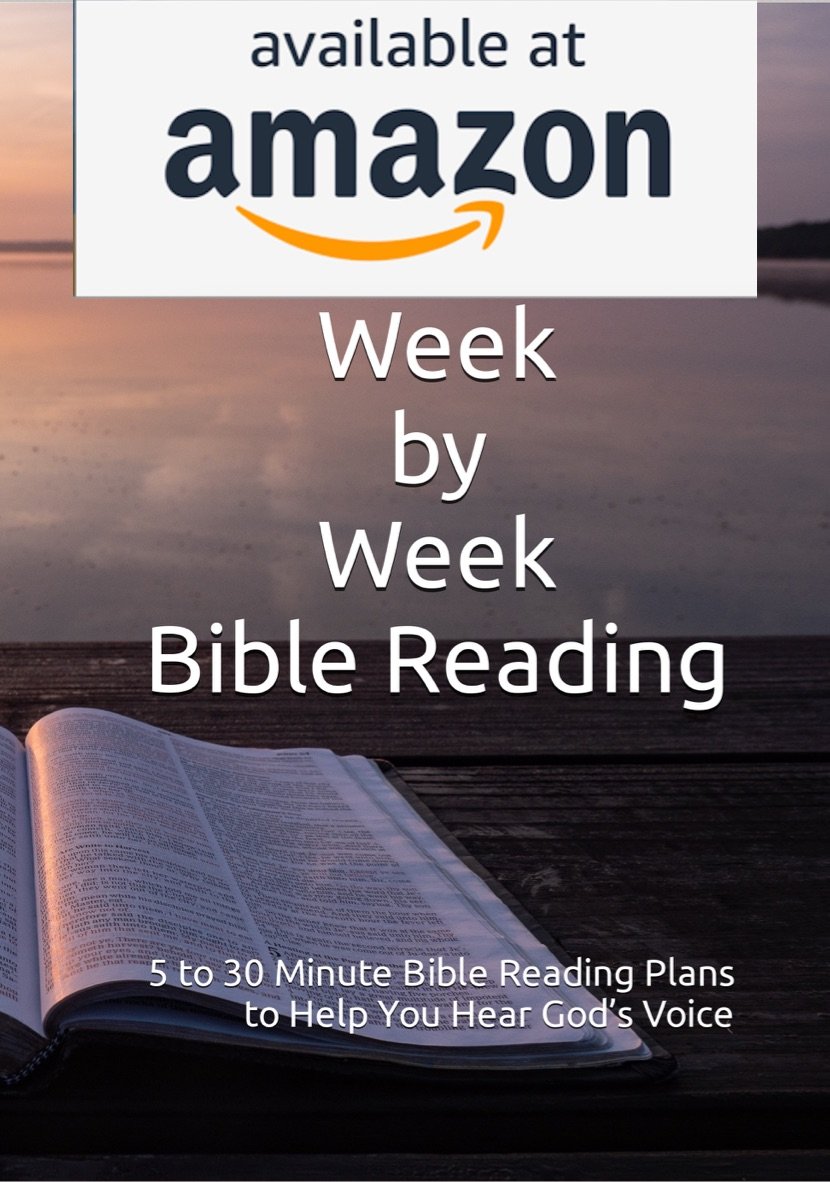2024 Sunday School Discussion Guide
Together we will read through the Old Testament in 2024!
Here are some helpful discussion questions for your Sunday School class or small group!
May Bible Reading Discussion Questions
May 5 - Week 17 – The Old Testament
Joshua 12-24 ~ Judges 1-2
Family Life - Small Group Warm Up Question:
Would you rather be more famous, wealthier, more athletic, or more intelligent?
Use these questions for personal prayer, reflection, study, journaling, or small group discussion.
Watch the Bible Project’s 9 minute video on Joshua if you have the time: https://www.youtube.com/watch?v=JqOqJlFF_eU While some may seek to characterize the Israelite takeover of the Promised Land as “genocide”, the reality is that all of the inhabitants (minus the Hivites/Gibeon) refused to make peace with Israel (Joshua 11:19–20). God was punishing the inhabitants of Canaan for their sexual immorality, murder of children, and false worship. While this calling of God for war was for a particular time and people, it demonstrates God’s holiness and justice. What sorts of evil stand out to you in your country and society today? How can we reach people in those sins so that they find peace with God thru Jesus?
Have you or any of your family experienced war? What was that like? How does a time of war give you greater appreciation for when you have “rest from war” (Joshua 11:23)? How can we best pray for people in warzones today? For military deployed into conflict? For times of peace?
While there are impressive victories listed in Joshua 12 & 13, it also quickly becomes evident that Israel did not fully drive out the pagan inhabitants as God had instructed them. Why do you think they only partially obeyed God? How do you think they justified their disobedience? What are some ways we might be tempted to partially obey God’s commands? What ways do we try to justify our disobedience?
While the listing of boundaries in Joshua 13-21 may seem boring to us today, it evidences the accuracy of the Scriptures as many of these seemingly insignificant towns and cities have been archaeologically discovered. Why do you think God gives us so much evidence for the accuracy of the Bible?
Read over Genesis 15:13-16, 18-21. How does it grow your faith to see how God both specifically foretold and upheld His promises to Abraham over 600 years later?
Caleb, who along with Joshua had been faithful “spies” earlier in the exodus journey, courageously requests the hill country of Hebron (Joshua 14:12) despite its occupation from the Anakim giant people. How does Caleb’s confidence in the Lord’s power and presence inspire and encourage your faith with your future battles?
In Joshua 20, cities of refuge are established for those who accidentally kill someone else, to give them protection from “the avenger of blood” while he awaits judgment. What does this teach us about God’s care and protection through governmental rules?
The Lord provides cities and pasture lands for the priests (Levites) in Joshua 21, with them spread out and living among the tribes of Israel. Why do you think the Lord spread them out this way instead of them all staying just around the Tabernacle?
Read Joshua 21:43–45. What does this teach us about the character of God?
When the tribes east of the Jordan build an altar of their own (Joshua 22:10-34), the other tribes prepare for war against them. Once they clarify that the altar is a “Witness” for the next generation and not for sacrifice, peace is made. What does this dispute tell us about how Israel regarded the holiness of God at this time?
In chapters 23 & 24, Joshua gives his final speech to Israel before he dies. He reminds them of God’s work and warns them of God’s judgment. Joshua says “as for me and my house, we will serve the Lord” (Joshua 24:15) and the people agree in covenant with him. What is the purpose of a covenant? How can a covenant be helpful for a local church? What is important in a covenant?
May 12 - Week 18 – The Old Testament
Judges 3-17
Family Life - Small Group Warm Up Question:
If you could tame and have any animal as a pet now, what would it be? What would you name it?
Use these questions for personal prayer, reflection, study, journaling, or small group discussion.
1. Have time to get an overview on Judges? Check out this free resource and video: www.bibleproject.com/explore/video/judges/ What is your favorite story from Judges? Why?
2. How would you summarize the book of Judges? The Bible Project summarizes Judges as “Israel’s Total Failure.” How do you see that play out across Judges?
3. Read Judges 2:1-5. Several times in the Old Testament God appears as “the angel of the Lord” which is described as a “theophany” (God’s appearance to man) or “Christophany” (Christ’s appearance to man before the incarnation of Jesus). In these instances, the “angel” often speaks directly as God (not just a messenger) and receives worship or sacrifice (which angels usually deny). (for more see: www.gotquestions.org/angel-of-the-Lord.html )What do you think it must have been like to hear the rebuke of “What is this you have done?” Have you ever been in a season of life where you felt God was correcting or disciplining you? What was that like? Despite this rebuke from God, did Israel learn? (Judges 2:11-15) Do we learn?
4. Read Judges 2:16-19. How does it feel to see that God does not completely abandon His people? Do we see a similar cycle of repentance/obedience/blessing and worldliness/disobedience/discipline in our own lives today?
5. Judges 17:6 & 21:25 state that “In those days there was no king in Israel. Everyone did what was right in his own eyes.” How does this verse summarize the 400+ years of the Judges. Do you feel that this verse could also describe the season and culture we live in? Why or why not?
6. In the Bible, sometimes stories are “descriptions” of man’s rebellion rather than “prescriptions” of God’s commands. What are some examples of “descriptions” rather than “prescriptions” from the stories of Ehud (ch.3:12-20), Deborah/Barak (ch.4-5), Gideon (ch.6-9), Jephthah (ch.11-12), and Sampson (ch.13-16)? What are some aspects of their stories that are good examples or lessons to us? What parts of these stories surprised or shocked you?
7. When Deborah speaks to Barak (Judges 4:6) it sounds like God had already told Barak what to do and he failed to do it. Can you think of a time when God told you to do something and initially you ignored His command? Did God later convict you or give you the courage to obey?
8. What kind of woman is Jael? (Judges 4:17-22) How does she inspire you?
9. Judges 5 is a song of celebration, remembrance, & victory. Do you have a favorite song that reminds you of God’s power & deliverance from Satan &sin? What is your favorite verse? Why?
10. In Judges 6-9 we are introduced to Gideon. What do you think about his interactions with the angel of the Lord? Would you have acted similarly or differently? What aspects of God’s character do we see in His appearance and communication as the angel of the Lord? Why did the Lord reduce the size of Gideon’s army so significantly from 32,000 to 300?
11. Jephthah’s pride is clear in Judges 11-12. How would you define pride? How can we recognize pride? Why do we struggle so much with pride? Why does our pride get us in so much trouble?
12. The story of Samson (Judges 13-16) is full of amazing victories. Much of Samson’s trouble devolved from his disobedience to his parents regarding marrying a believer/Israelite (Judges 14:3). Why is marrying a believer so important (1 Corinthians 7:12-16,39)? Why is sexual sin so particularly addictive and destructive?
13. The book of Judges finishes with some horrific descriptions of sin. What can we learn from this downward spiral of sin among Israel? What sins do we see Christians most tempted by today?
May 19 - Week 19 – The Old Testament
Judges 18-21 ~ Ruth 1-4 ~ 1 Samuel 1-7
Family Life - Small Group Warm Up Question:
What is the craziest food you have ever tried? Would you eat it again?
Use these questions for personal prayer, reflection, study, journaling, or small group discussion.
1. The book of Ruth has some amazing aspects of womanhood. What inspires you or stands out to you from the story of Ruth? Who are some women in your life in which you have seen similar characteristics?
2. In Ruth 1 we are introduced to Naomi who has lived in Moab for over a decade as a foreigner and is now grieving over the death of her husband and two sons. What challenges would come with living in a foreign country? What particular challenges do you think she face as a widow? In losing her two sons? Have you experienced similar challenges or grief? In those experiences, how did God provide for you? Grow you? Use you?
3. When Naomi returns home to Bethlehem, she refers to herself as “Mara” which means “Bitter” as she says “I went away full, and the LORD has brought me back empty” (Ruth 1:21). Is Naomi correct in blaming God for her loss? Why or why not? Is Naomi correct in remaining bitter? What are the dangers of bitterness? What are the roots of bitterness? How do we overcome bitterness?
4. We see God use Naomi to provide wisdom and counsel to Ruth towards her eventual marriage to Boaz, through which the Lord provides for the lineage of both King David and Jesus. Naomi’s friends refer to this blessing by crediting the Lord for providing a “redeemer” and as a “restorer of life” and “nourisher” (Ruth 4:14–15). Do you have a friend who is an encourager to you even in life’s most difficult times? How can we be better encouragers to help others see the Lord’s many blessings in the midst of our struggles and troubles?
5. Read Ruth 1:16. What do you think it took for Ruth to make such a statement and commitment? In Israel, Ruth gains a reputation as a “worthy woman” (Ruth 3:11). How can we aim to have such a “worthy” reputation among our community? How does our reputation reflect upon the name of Christ?
6. While the particular aspects of gleaning and redeeming in the book of Ruth may be strange to our culture today, what can we learn from them? Read Boaz’s statement in Ruth 2:8-13. How did the Lord “repay” and “reward” you abundantly when you have sought out the good of others? How does this encourage your faith? Why do you think the book of Ruth ends with a genealogy?
7. Read 1 Samuel 1:10. Does this summarize the pain of infertility? Why do you think God provides so many stories of infertility across the Bible? How have those stories ministered to you or your family?
8. What is your favorite part about Hannah’s song? (1 Samuel 2:1-10) Why?
9. How are Eli’s sons described? (1 Samuel 2:12-17) While Eli does rebuke his sons about their treatment of the Lord’s sacrifices and their sexual immorality (1 Samuel 2:22) it was too little and too late. God confronts Eli through a “man of God” (1 Samuel 2:27- 36) and Samuel (1 Samuel 3:10-14) because Eli has honored his sons above God by not restraining them from their evil choices. Why is godly parenting so difficult? Why is godly parenting so important? How do you see people honoring their children above God today?
10. Both Eglon (Judges 3:17,22) and Eli (1 Samuel 4:18) are referred to as overweight in the midst of their deaths. Why is maintaining a healthy weight often so difficult? Why is it important?
11. What stands out to you from the Philistines’ suffering during their possession of the Ark of the Covenant (1 Samuel 5 & 6)? What does their experience remind us about God?





